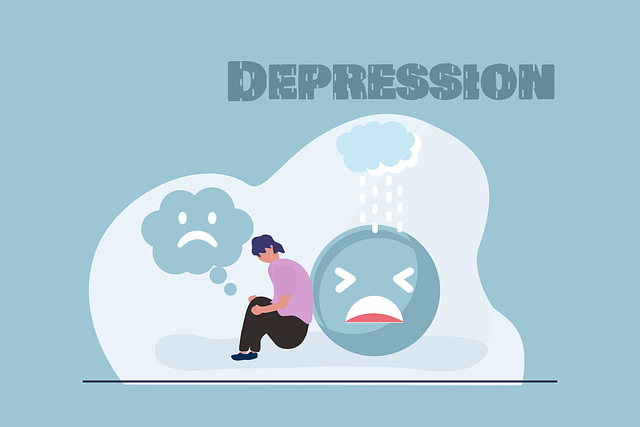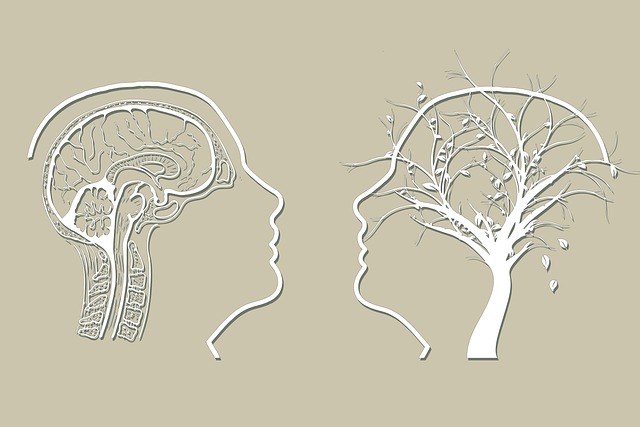Stress, left unaddressed, poses severe physical and mental health risks for individuals and communities, particularly in cities like Denver with accessible domestic violence therapy services. Emotional Intelligence (EI) is key to managing stress. Workshops focused on burnout prevention and mental wellness strategies, such as those offered by Denver Domestic Violence Therapy, equip people with evidence-based tools like mindfulness meditation, enhancing self-awareness, emotional regulation, and resilience. By creating engaging environments tailored for diverse audiences, these workshops foster mental health awareness and self-care practices, leading to improved overall well-being. Evaluating their success involves multi-faceted approaches measuring both immediate and sustained outcomes over time.
In today’s fast-paced world, stress has become an all too common companion. This is particularly true in bustling cities like Denver, where the demands of daily life can feel overwhelming. Stress management workshops offer a powerful tool for individuals and communities to navigate these challenges. From understanding the physiological and psychological impacts of stress to learning effective coping mechanisms, these workshops empower participants with valuable skills. This article explores the transformative potential of workshops, providing insights into planning, design, and evaluation strategies for impactful programs like Denver Domestic Violence Therapy’s offerings.
- Understanding Stress and Its Impact on Individuals and Communities
- The Role of Workshops in Effective Stress Management
- Planning and Designing Engaging Stress Management Workshops
- Measuring Success and Long-Term Impact: Evaluation Strategies for Workshops
Understanding Stress and Its Impact on Individuals and Communities

Stress is a ubiquitous aspect of modern life, yet its impact on individuals and communities can be profound. It’s essential to understand stress not just as a personal struggle but as a force that can shape collective well-being, especially in areas like Denver, where domestic violence therapy services are readily available. When left unaddressed, chronic stress can lead to physical and mental health issues, affecting overall community resilience.
Emotional Intelligence plays a pivotal role in managing stress, helping individuals recognize and regulate their emotions effectively. Workshops focusing on burnout prevention and mental wellness strategies are crucial tools for navigating stressful situations. By promoting these skills, communities can foster a culture of support that mitigates the damaging effects of stress at both individual and societal levels, ensuring a healthier, more resilient Denver.
The Role of Workshops in Effective Stress Management

Stress management workshops play a pivotal role in empowering individuals to take control of their mental well-being. These interactive sessions provide a safe and supportive environment where participants can learn valuable tools and techniques tailored to navigate life’s challenges. Through engaging activities, expert guidance, and peer support, workshops foster a deeper understanding of stress triggers and promote healthy coping mechanisms.
At Denver Domestic Violence Therapy, we design our Mental Health Education Programs with the Mind Over Matter principles in mind. By integrating evidence-based practices such as mindfulness meditation, participants gain practical knowledge to manage stress effectively. Our expert facilitators guide individuals through exercises that enhance self-awareness, emotional regulation, and resilience – all key components for improving overall mental health. These workshops are not just about learning; they inspire lasting positive changes, enabling folks to embrace a more balanced and fulfilling life.
Planning and Designing Engaging Stress Management Workshops

When designing Stress Management Workshops, it’s essential to foster an environment that encourages active participation and promotes lasting behavioral changes. Start by identifying the target audience and their specific needs. Are they corporate employees seeking work-life balance or individuals recovering from trauma, like those seeking Denver Domestic Violence Therapy? Tailoring content to address these distinct demographics ensures relevance and engagement. Incorporate interactive elements such as group discussions, role-playing scenarios, and mindfulness exercises to make sessions dynamic and memorable.
Focus on creating a safe space where participants can openly discuss stress triggers and coping mechanisms without judgment. Facilitators should model self-care practices, emphasizing the importance of mental health awareness and inner strength development. By blending educational content with practical strategies, these workshops can equip individuals with tools to manage stress effectively, ultimately enhancing their overall well-being, especially when combined with established routines for self-care routine development for better mental health.
Measuring Success and Long-Term Impact: Evaluation Strategies for Workshops

Evaluating the success and long-term impact of stress management workshops is crucial for understanding their effectiveness in fostering mental wellness. This process involves a multi-faceted approach to measure both immediate and sustained outcomes. Post-workshop feedback forms are a common tool, allowing participants to share their experiences, what they learned, and how the workshop might have helped them cope with stress differently.
Additionally, long-term success can be tracked through follow-up surveys or interviews that gauge the continued application of self-awareness exercises and positive thinking strategies. For instance, at Denver Domestic Violence Therapy, they’ve found that structured journaling exercises aimed at mental wellness can significantly improve participants’ ability to manage stress over six months, demonstrating the lasting impact of well-designed workshops.
Stress management workshops play a vital role in enhancing well-being, especially in communities affected by domestic violence. As demonstrated by Denver Domestic Violence Therapy, these sessions can be powerful tools for empowering individuals and fostering resilience. By combining education, interactive activities, and evaluation strategies, organizations can design effective programs that not only address immediate stress but also promote long-term mental health. Through dedicated planning and engaging content, workshops become a game-changer in navigating life’s challenges.














